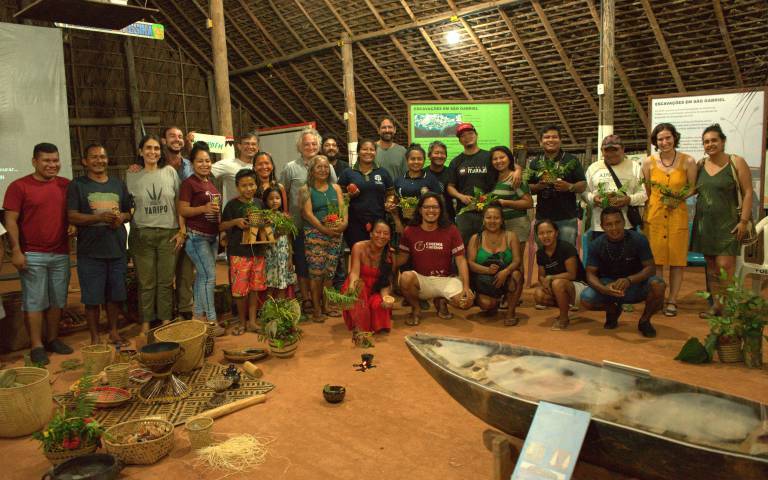Reclaiming indigenous history from Amazonian soil
5 June 2023
Manuel Arroyo-Kalin's (UCL Institute of Archaeology) work with Brazilian researchers and indigenous peoples, to better understand and share their cultural heritage, has been featured by UCL News.

Along the banks of the Rio Negro in northwest Brazil, there lies the largest untouched rainforest tract in the whole of the Amazon basin, demarcated as an indigenous territory. Archaeologists, anthropologists, and other scholars, as well as indigenous peoples themselves, know that the region was inhabited in pre-colonial times. Yet archaeological knowledge about the details remains scarce.
Thanks to a British Academy/Global Challenges Research Fund grant in Sustainable Development, Manuel Arroyo-Kalin has been leading an exciting interdisciplinary project there. It seeks to uncover evidence of age-old human occupations, as well as developing intercultural dialogue with local indigenous communities.
Partnering with researchers from Brazilian museums - Museu da Amazônia (Musa) and Museu Paraense Emílio Goeldi (MPEG) - as well as São Carlos Federal University (UFSCar) and NGO Instituto Socioambiental (ISA), the Intercultural Archaeology Programme of the Northwest Amazon (PARINÃ) took shape. It is a long-term research strategy that aims to study the history of the north-west Amazon through intercultural engagement with the people living there.
PARINÃ archaeologists have helped to train the region’s first indigenous archaeology students, involving them in archaeological excavations uncovering artefacts that could be up to 2,000 years old.
Read the full UCL News Feature about Manuel's collaborative research here
The PARINÃ team working with Manuel are: Helena Pinto Lima, Márcio Meira, Lucia Hussak van Velthem (MPEG); Filippo Stampanoni Bassi, Meliam Gaspar, Iberê Martins (Musa); Geraldo Andrello, Diego R Pedroso, Aline Scolfaro (UFSCar); and Alosio Cabalzar, Renata Alves (ISA).
Image: Credit Moises Baniwa
Read more
- Manuel Arroyo-Kalin awarded funding by the British Academy to help tackle UN's Sustainable Development Goals
- PARINÃ - Memorialising Ancestral Landscapes of the Brazilian Northwest Amazon
 Close
Close

